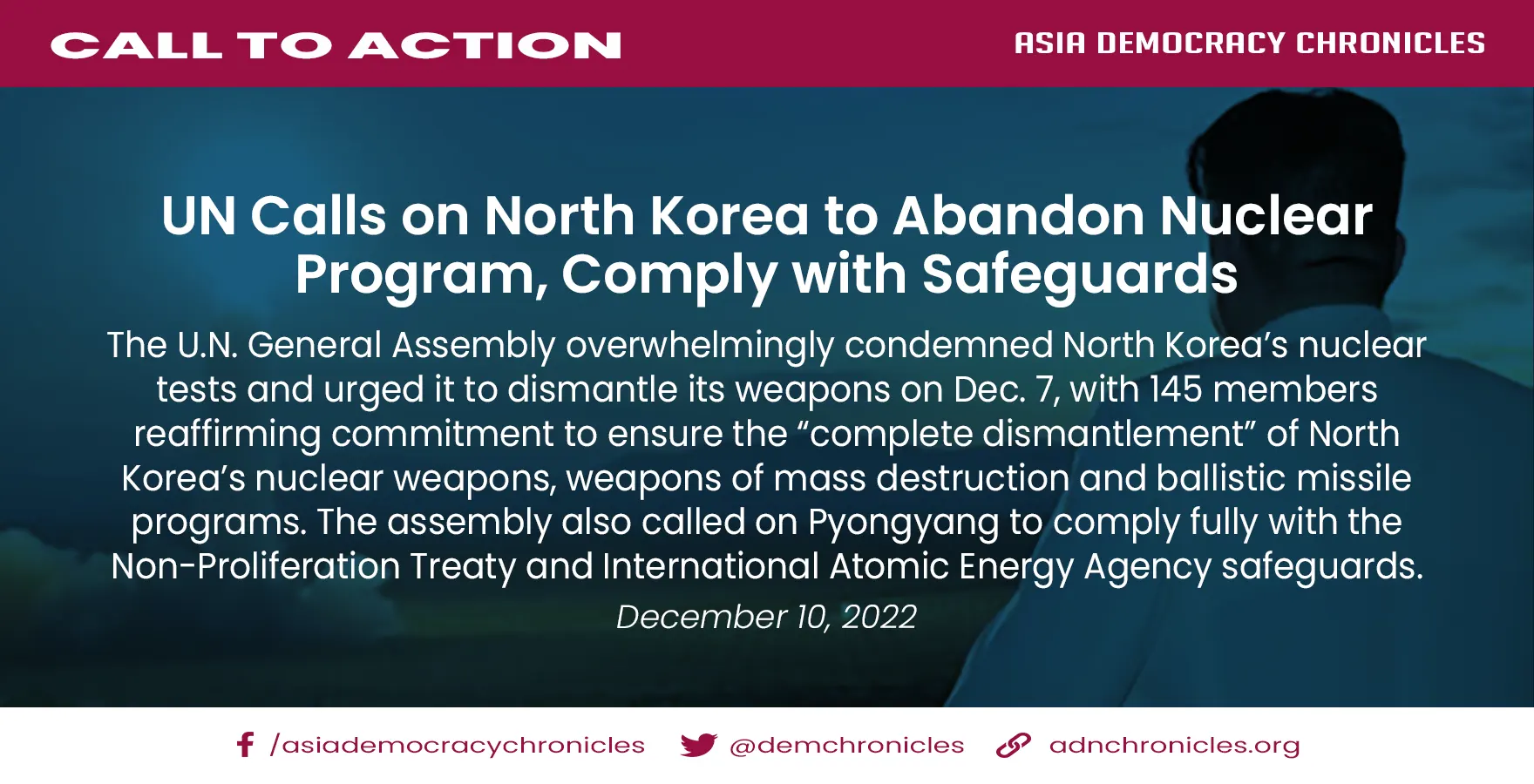|
Getting your Trinity Audio player ready...
|
10 December 2022
The U.N. General Assembly (UNGA) overwhelmingly condemned North Korea’s nuclear tests and urged it to dismantle its weapons on Wednesday, while China and Russia were among a handful of states that voted against a key motion on Pyongyang’s denuclearization.
The UNGA adopted over 100 resolutions and decisions related to nuclear weapons and other international security concerns, and 166 countries voted in favor of a motion condemning all six DPRK nuclear tests since 2006, with only North Korea opposed.
The assembly also voted 145 to 4 to reaffirm its commitment to ensuring the “complete dismantlement” of the DPRK’s nuclear weapons, weapons of mass destruction and ballistic missile programs, with China, Russia and Syria joining North Korea in opposition to the motion.
The assembly expressed “serious concern” about North Korea’s new nuclear law expanding the range of scenarios in which the country may use nuclear weapons, and called on Pyongyang to comply fully with the Non-Proliferation Treaty and International Atomic Energy Agency safeguards.
North Korea and India were the only two countries that opposed a motion urging all countries to sign and ratify the Comprehensive Nuclear-Test-Ban Treaty “in all expediency” and to refrain from nuclear tests.
The U.N. vote comes amid speculation throughout this year that it is preparing to conduct a seventh nuclear test in the immediate to near future.
Meanwhile, White House Indo-Pacific policy chief Kurt Campbell moved to reassure Seoul and Tokyo that Washington’s “extended deterrence” against such North Korean threats remains “robust,” amid increasing talk about the two countries acquiring their own nuclear weapons.
“One of the enormous achievements in the Indo-Pacific, in Asia, for decades has been the stability and reassuring quality of our extended deterrence, of our nuclear umbrella,” he said at a security forum in Washington on Thursday.
Campbell admitted the growing nuclear threat is creating “anxiety” in Northeast Asia, but maintained that the U.S. will continue to commit conventional forces to defend its allies.
“We’ve got to make clear to Japan, to South Korea, to other countries that our nuclear deterrent remains robust and that we remain deeply committed again to nuclear deterrence in the Indo-Pacific,” he said. #



















